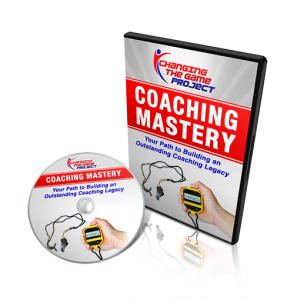This article is contributed by Bjorn Galjaardt
Does coaching means to achieve results and reach set targets? Coaching to win! However, this is only one perceived idea on coaching. True, there are goals that need to be achieved. The reality is that most coaches view coaching as a complex process that contributes to multiple facets of the individual and thus team.
Filled with curiosity about the concept of coaching, I picked the brains of seven highly regarded coaches from various backgrounds and industries. Posing the difficult question: ‘Can you describe in a few sentences what coaching means to you’?
Mrs. Gonny Farley-Reijnen. Lecturer Sport Institute CIOS | Culture Coach Royal Dutch Baseball and Softball Association. Coaching for me is creating a positive performance culture. One in which everyone knows their tasks and responsibilities. A coach is there to lead everyone to the right behaviour, ensuring that they continue to grow, have the freedom to succeed and have relationships that they value. This applies to the individual as well for the team. Embrace the process!
Mr. Jay Ellis. Sports Performance / Business Academic | Academic Lecturer Australian College of Physical Education | High-Performance Consultant. My single thought: Coaching for me is all about people skills. Understanding the athlete is vital! Our job as coaches should be to develop the person before the athlete (the second will come).
Mr. Simon Daley. Head Water Polo Coach | Founder of Academy Water Polo & Goggle Project. It is the ‘self-felt joy’ of being given an opportunity of unlocking a player’s potential, so as to maximise their own performance towards success. This not only involves their on-field skill requirements but having a guide to their off-field achievements post their sporting career.
Ms. Martine Tobe. Director at Children’s Perspective Foundation | Founder Lifebook for You(th) | Board member FICE Netherlands. For me coaching is especially focussed and designed to provide a perspective for the future. Asking questions and providing a mirror to allow for self-reflection. Using positive psychology and recognising traits together to further develop. The coaching basis is providing attention to ‘growth’ possibilities. I like to focus on the qualities and contribute to a positive feeling in doing so.
Mr. Grant Jenkins. Performance Coach | Presenter | Educator | Coaching Athletes | Accelerating careers | Developing businesses. To improve the mindset of the person I am working with so they can achieve their long-term goals in life.
Mr. Bob Beusekom. Executive Director at The Executive Nomad | CFO Bright Zebra | Board member True (Family Planning Queensland). “Beat your yester self”. My view is that coaching style leaders do not only focus on the role performance of their staff. They also aim to develop their staff’s ‘self’, ideally considering the whole person, in a safe environment, on a plate of trust and respect, with a sauce of authenticity and vulnerability. Through coaching, as a leader, you can help reduce blind spots and self-limiting beliefs, giving your staff confidence and insight in their ‘selves’, purpose, and roles in life.
Mrs. Anna Wood. Women’s High-Performance Coach Australian Canoeing | Musculoskeletal and Sports Physiotherapist. As a HP coach I need to know my athletes’ goals, dreams and beliefs, their doubts and fears, basically what makes them tick… Between coach – athlete – team we strive for a foundation of trust and respect with room for individuality. If this foundation is firmly embedded into our culture, we are able to provide honest and constructive feedback, achieve full commitment of every team member and hold each other accountable. I believe this is the pathway to success.
SUMMARY:
Coaching as described by the business, education and sports coaches above is focused on ‘the person beyond the player’. Goals are merely milestones to provide an indication in the process of coaching performance. Whether it is improvement in one context, say technical aspects, there are other contexts like life skills, study/work balance and so on. Coaching is a meticulous process that is continuously managed and reviewed. A portfolio of this perspective on coaching will include a range of foundational strategies. For example, focus on personal development, growth mindset, and creativity. Furthermore, allowing room for self-reflection, mutual respect and understanding. Coaching comprises an arsenal of believes, methods and strategies to create a culture of trust and commitment for people to flourish. Coaching the person, equals coaching the process: ‘Fuelling the engine for optimised coaching’.
Special thanks goes out to the contributing coaches for this article.
AUTHOR
Bjorn Galjaardt (B.ed) studying a Master of Sports Coaching with a focus on Olympic education. He has 12+ years coaching and management experience from grassroots to elite sports level. Currently delivering online and in person performance services at Blended Performances.

